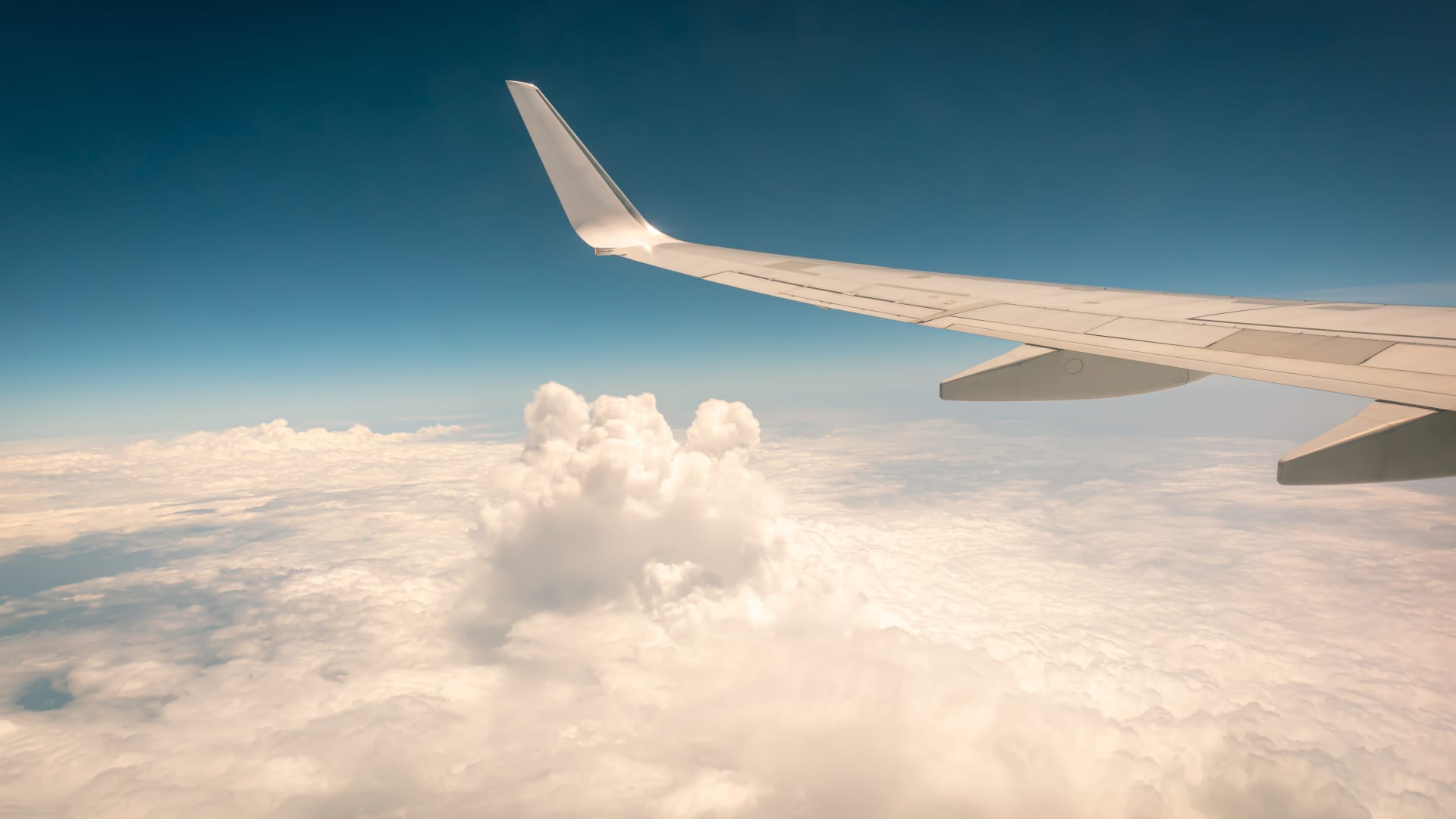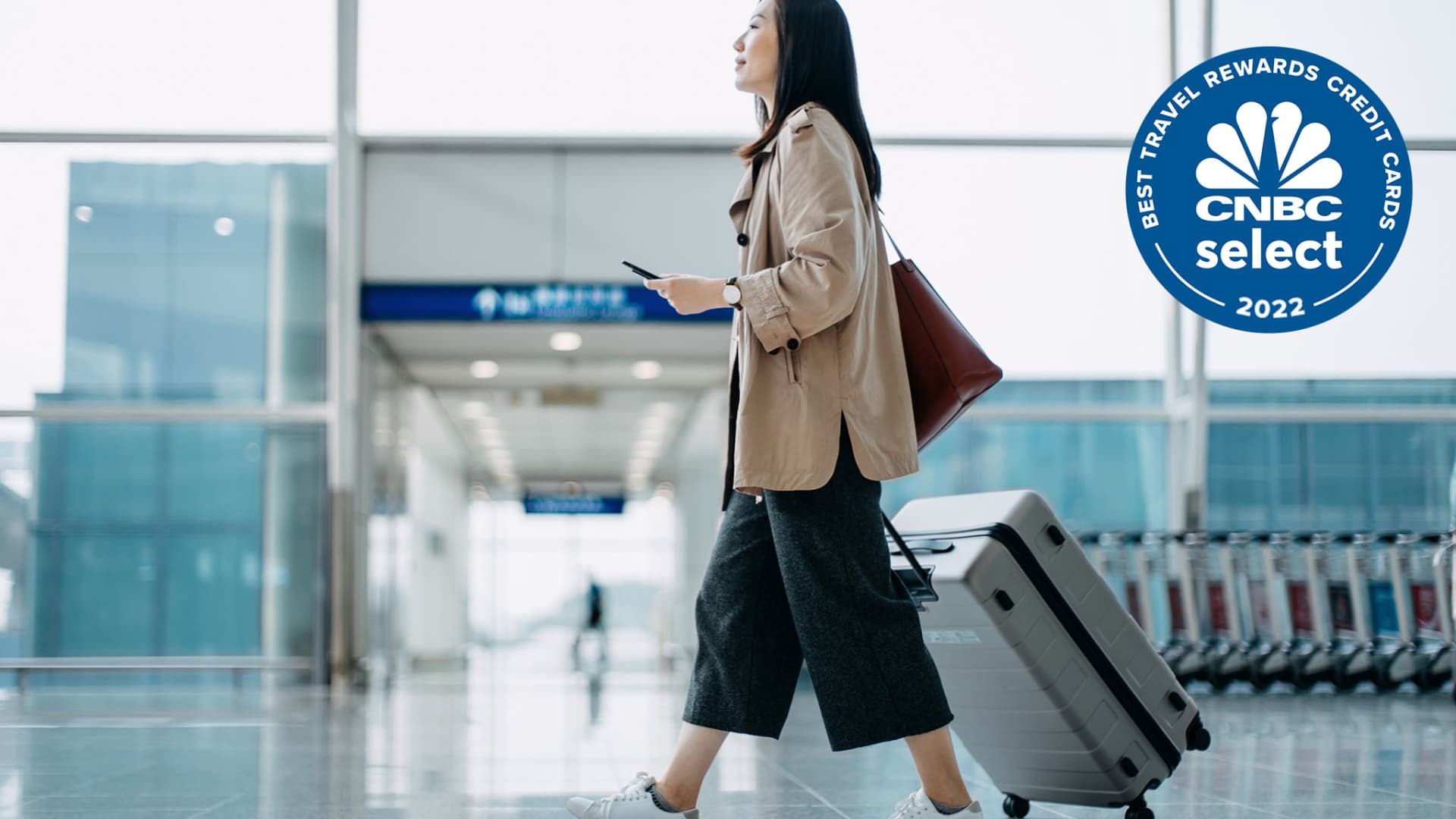
- Airline tickets with a layover are 20% cheaper, on average, than nonstop flights, according to a Google Flights analysis of historical data.
- However, flight cancellations and delays have increased this year. That can have cascading effects on other aspects of a trip with multiple stops.
- Travel experts share tips on nonstop flights versus layovers, and other advice to save money on your next trip.
There's a surefire way to save money on plane tickets — but those savings may not be worth it for some travelers, depending on their tolerance for certain headaches.
The money-saving strategy likely doesn't come as a surprise: Booking a flight with one or multiple stops is generally less expensive than choosing a non-stop option. The average discount for doing so can be substantial, around 20%, according to Google Flights data on domestic flights for the past five years.
Round-trip domestic flights cost $293 in August, on average, according to Hopper. A 20% discount on that average fare amounts to roughly $59.
Get San Diego local news, weather forecasts, sports and lifestyle stories to your inbox. Sign up for NBC San Diego newsletters.
More from Personal Finance:
Consumers underestimate monthly subscription costs by at least $100
Social Security adds safety protocols amid long wait times
GOP could bring legal challenge to block student loan forgiveness
The Google analysis calls the willingness to take a layover "one of your best bets to save money when you fly."
"That's largely because there are just more ways to get from Point A to Point B with a stop in between," according to James Byers, group product manager for Google Flights.
'Reduce variables' to limit layover woes

Travelers may feel the impulse or have the need to trim travel budgets as airfare and other trip costs have become more expensive. Costs for airfare, hotels and rental cars fell in July relative to a year earlier, but are still up compared to pre-pandemic levels — by double-digit percentages, in some cases, according to federal data.
Money Report
Searches for "cheapest airline tickets" swelled by 240% in the U.S. between April and August this year relative to the prior four-month period, from November 2021 to March 2022, according to Google.
But the savings travelers get from layovers come with tradeoffs — ones travelers may feel more acutely as airlines continue to struggle with potential consumer annoyances like flight and baggage delays, according to travel experts.
There's the obvious time differential — it takes longer to travel with stops than without. But travel delays and cancellations can have cascading effects that impact the remaining legs of your trip.
For one, you may miss a connecting flight if your first is delayed. Even if you arrive on time for a connecting flight, your bag may not if the layover is too short.
Of course, travelers may not have the option to choose a nonstop flight, especially if they don't live near a major airport. Those with the option (and the budget) to fly nonstop may find it's worth the extra cash. Those without the option can potentially reduce their number of layovers during a trip — perhaps one instead of two, for example.
"You want to reduce variables as much as possible when you travel," according to Sara Rathner, a travel expert at NerdWallet.
'Err on the side of more time, always'

About 73% of flights arrived on time in June this year — fewer than the nearly 75% in June 2021, though about equal to the pre-pandemic rate in June 2019, according to most recent Department of Transportation data.
More flights have been cancelled, too — 3.1% of flights in June 2022, which is double the rate during the same time last year and up from 2.1% in 2019, according to agency data.
Airlines mishandled a larger share of bags from January to June 2022 than in recent years, too. More than 1.4 million bags — 0.63% of the total — were mishandled during that period, versus 709,700 (0.44% of all bags) in 2021 and 1.5 million (0.61%) in 2019. Mishandled bags include those that are lost or delayed.
"Err on the side of more time, always," Rathner said. "Lines are long and airports are still understaffed, so you don't want to waltz into the airport with 20 minutes to go."
For travelers choosing a flight with one or more stops, she recommends looking for layovers of 90 minutes or more for U.S. flights to provide an adequate buffer.
Those with a layover can also eliminate the risk of a lost or delayed bag by packing light and carrying belongings onto the airplane rather than checking them, she said.
5 more tips for cheaper airfare and travel
There are ways travelers can potentially reduce their costs for plane tickets — and for a trip, more broadly — aside from choosing a layover. Some may run counter to popular belief.
- Be flexible with when you fly: Flying domestically on a Monday, Tuesday or Wednesday yields a 20% discount relative to a weekend departure, on average, according to Google's analysis of historical data. The discount is 12% when considering both international and U.S. flights. Additionally, those with flexibility to travel during the offseason between Labor Day and year-end holidays will generally get discounts relative to peak travel times, Rathner said. Domestic airfare in September and October is down 37% compared to the peak summer season, for example, according to Hopper.
- And where you fly from: Consider all nearby airports, not just the one closest to you. It may be cheaper to drive to an airport farther from home and fly in and out from there, compared to your home airport, according to Phil Dengler, a travel expert at The Vacationer.
- Shop early: Waiting for a particular day of the week to book a flight doesn't offer much of a financial benefit — travelers have gotten a paltry 1.9% discount, on average, by shopping on a Tuesday, Wednesday, or Thursday instead of the weekend, according to Google. Buying well in advance has a "much bigger influence" on cost than waiting for a Tuesday, Byers said. Domestic flights are cheapest about a month and a half before departure, though may vary based on the specific route, Google found.
- Set price alerts: Experts recommend using services that help consumers track cheap airfare and send price alerts to travelers. Examples include The Fare Deal Alert, The Flight Deal, Google Flights, KAYAK Price Alerts, Scott's Cheap Flights and Secret Flying, according to Rathner. "It can be useful to use the technology that exists to save you from yourself," she said.
- Book your trip backwards: Flights are often the first thing people consider and book when planning a trip. But plane tickets may not be the most expensive component. Optimizing the price of a rental car by searching for the lowest-cost combination of days, and then buying plane tickets to match that itinerary, may help save money on the overall trip even if it means paying a little more for airfare, Rathner said.






